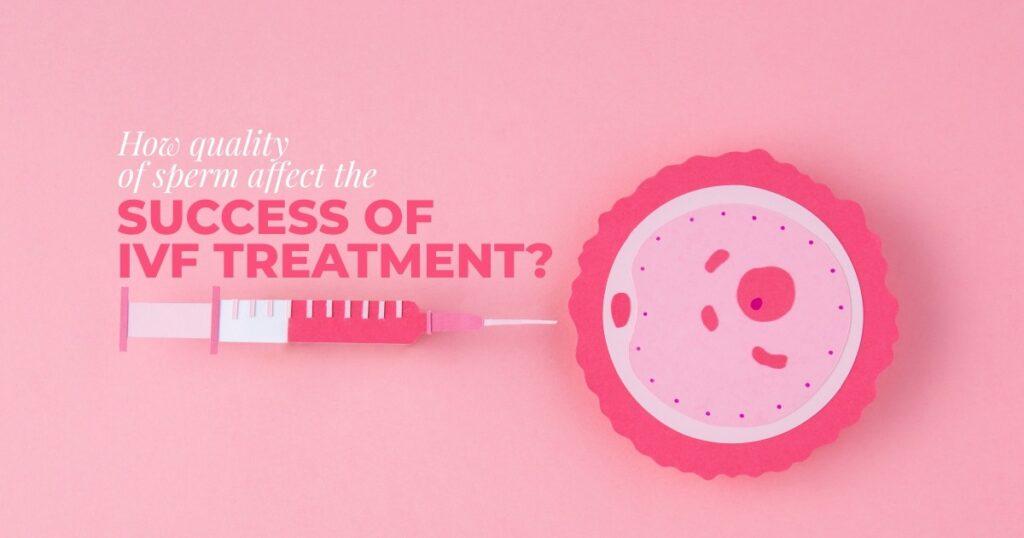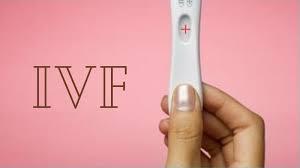Does Low Sperm Quality Affect Your Chances of IVF Success?
When it comes to fertility, there’s no doubt that a couple’s chances of conception can be affected by many factors, One of which is the quality of sperm. But what happens when low sperm quality meets IVF? Does this combination affect your chances of success or are you still in with a fighting chance? In this blog post, we’ll explore the relationship between low sperm quality and IVF success rates so you can make informed decisions about your fertility journey.

What is IVF?
In vitro, fertilisation is known as IVF. It is a kind of assisted reproductive technology (ART) that aids those who are having trouble conceiving normally. IVF involves taking eggs out of a woman’s ovaries and fertilising them with sperm in a lab. For one or more of the resultant embryos to implant and lead to a successful pregnancy, they are then reinserted into the woman’s uterus.

What is Sperm Quality?
Sperm quality refers to the overall health and fitness of a man’s sperm. The quality of sperm is assessed through various factors, such as sperm count, motility (movement), morphology (shape), and volume. Sperm count is the number of sperm present in a given sample. Overall, the quality of a man’s sperm can have a significant impact on his fertility and the ability to conceive a child. If a man is experiencing fertility issues, a doctor may order a semen analysis to assess the quality of his sperm.
How Does Sperm Quality Affect IVF Success?
Fertility treatments like in-vitro fertilization (IVF) can be costly, stressful, and emotionally draining. So, it may worry most people if your sperm quality could impact the success of IVF. The short answer is: yes, sperm quality can affect the success of IVF. The IVF success rate is determined by a variety of factors. Another among them is sperm quality. In an IVF process, sperm and eggs are fertilised in a lab environment after being removed from the ovaries. In the hopes that they may implant and develop into a healthy pregnancy, the resultant embryos are subsequently put into the uterus.
So, what role does sperm quality play in all of this? It plays a very important role during fertilization as if the sperm used for fertilization is of poor quality, it can make it more difficult for an embryo to implant and develop properly. Also, it can lead to lower pregnancy rates and higher miscarriage rates.
Several things can impact sperm quality, including age, lifestyle choices (such as smoking), genetic factors, certain medical conditions (such as diabetes), and previous injuries or surgeries (such as vasectomies). Therefore, low sperm quality can affect the chances of IVF (in vitro fertilization) success. Low sperm quality can manifest in some ways, such as low sperm count, poor sperm motility (movement), or abnormal sperm morphology (shape). These factors can impact the ability of sperm to fertilize an egg, resulting in lower rates of successful fertilization or lower-quality embryos.
Even with poor sperm quality, some methods can help to increase the likelihood of success. As an illustration, the intracytoplasmic sperm injection (ICSI) method entails injecting a single sperm right into the egg. This method can be applied to boost the likelihood of fertilisation in situations where the sperm count or motility is low. Even with poor sperm quality, some methods can help to increase the likelihood of success. As an illustration, the intracytoplasmic sperm injection (ICSI) method entails injecting a single sperm right into the egg. This method can be applied to boost the likelihood of fertilisation in situations where the sperm count or motility is low.
In addition, fertility specialists may recommend lifestyle changes and/or medical treatments to improve sperm quality before IVF treatment like changes in diet, exercise, and medication.
Factors That Affect Sperm Quality:
Sperm quality can be affected in many ways.Here we are discussing some common factors
Age
With an increase in the men’s age their body produces a lower quality of sperm. Older men tend to have lower sperm quality than younger men.
Health
Men who are overweight, have diabetes, or suffer from other health conditions may have lower sperm quality. This is because these conditions can damage the cells that produce sperm.
Drugs consumption
Smoking, drinking alcohol, and using any kind of drugs can all negatively impact sperm quality. These substances can damage the cells that produce sperm thus resulting in low sperm quality.
Exposure to toxins
Exposure to certain chemicals and pollutants can also damage the cells that produce sperm, leading to lower-quality sperm.
More Ways to Improve Sperm Quality
There are a few other ways to improve your sperm quality. These include:
- avoiding smoking
- excessive alcohol consumption
- eating a healthy diet rich in antioxidants
- exercising regularly
- managing stress levels
By taking these measures, you can help improve your chances of success with IVF.
Conclusion
In conclusion, the quality of a man’s sperm does have an impact on IVF success rates. However, it is important to note that there are other factors at play and seeking medical advice from a fertility specialist can help determine the best course of action for couples trying for a baby via IVF. Through careful examination and diagnosis, your doctor may be able to recommend treatments or lifestyle changes that could improve the chances of having a successful pregnancy with IVF.
